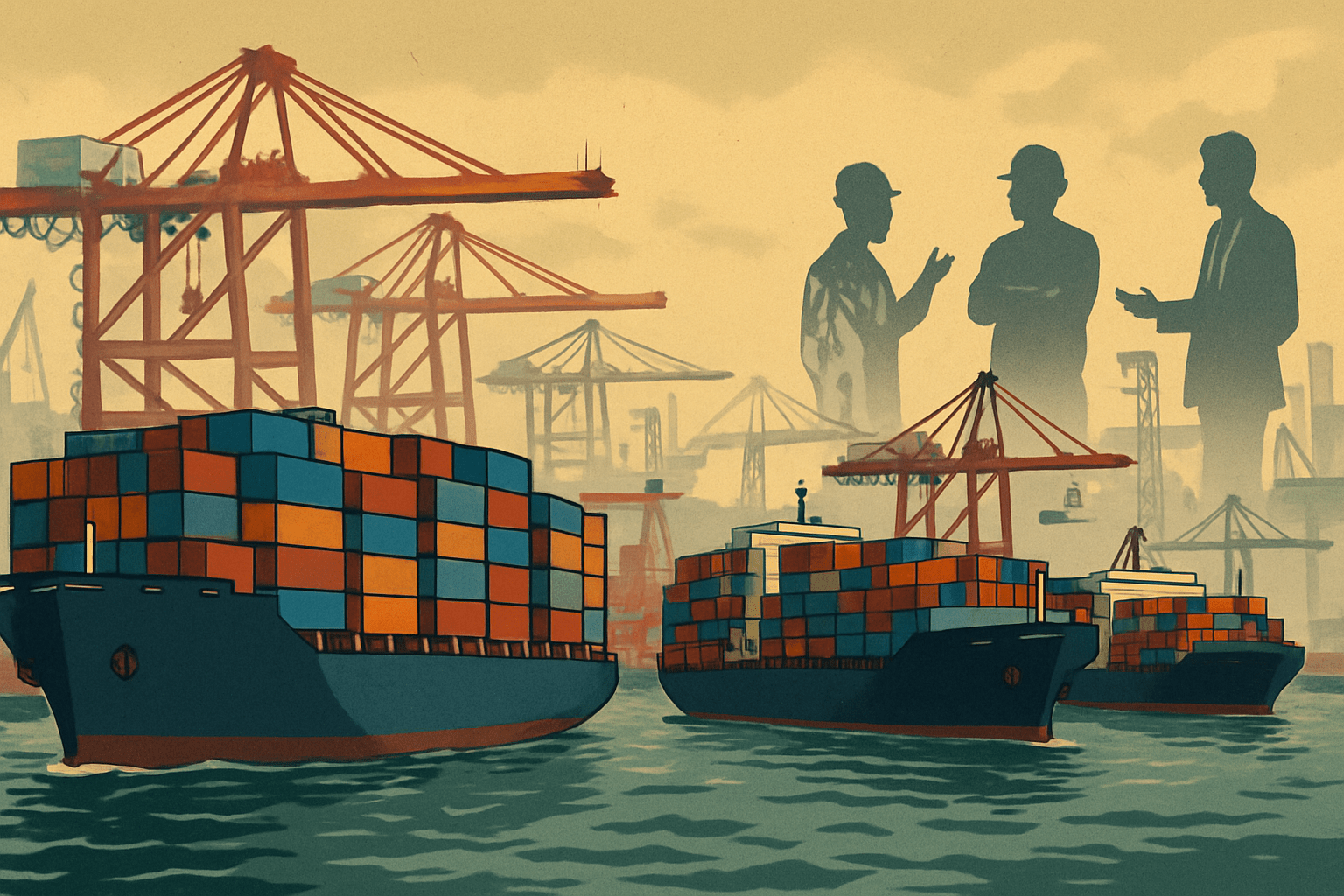
GENEVA, SWITZERLAND – The global shipping industry, a critical backbone of international trade, is once again navigating a complex environment marked by renewed port congestion in key global hubs and ongoing labor negotiations that could potentially disrupt supply chains.
After a period of relative calm following the extreme disruptions seen during the pandemic, bottlenecks are re-emerging, particularly in major ports across Asia and North America. These issues are driven by a combination of factors, including fluctuating demand for goods, vessel scheduling imbalances, and inland transportation constraints such as trucking and rail capacity shortages. The delays are leading to longer transit times for cargo and increased shipping costs, which can ultimately translate into higher prices for consumers.
Adding to the uncertainty, crucial labor contract negotiations are underway in several important port regions. While stakeholders are hopeful for amicable resolutions, the possibility of strikes or slowdowns looms, which could have significant ripple effects across already strained global supply chains. “The resilience of global supply chains is being tested yet again,” commented an analyst from a leading maritime research firm. “While the industry has learned valuable lessons from recent years, the confluence of operational challenges and labor uncertainties requires careful management to avoid a repeat of severe widespread disruptions.”
Shipping lines are actively rerouting vessels and adjusting schedules to mitigate the impact of congestion, but these measures often come with their own set of costs and complexities. Investment in port infrastructure and technology to improve efficiency and throughput is ongoing, but these are typically long-term projects. In the shorter term, enhanced collaboration and data sharing among all supply chain participants – including ports, carriers, shippers, and inland transport providers – are seen as crucial for better planning and resource allocation. The situation is also prompting some companies to re-evaluate their inventory strategies, with a potential shift away from just-in-time models towards holding larger safety stocks to buffer against supply chain volatility.
The outcome of current labor negotiations and the ability of ports to clear backlogs will be key determinants of shipping costs and reliability in the coming months. Any prolonged disruption could have implications for global trade flows and economic recovery, particularly for industries reliant on timely delivery of components and finished goods. Furthermore, the environmental impact of idling ships waiting for berthing slots is also a growing concern, adding another layer of complexity to the challenges faced by the maritime transport sector as it strives for greater sustainability and efficiency in its operations worldwide.
Updated: May 16 – 2025